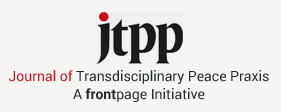Description
Online Buying Price: £ 10.95; INR 375; $ 17.95
In early January 1948, Dr Jagdishchandra Jain, the Chief Prosecution Witness of the Mahatma Gandhi Murder Trial, came to know of the plot to assassinate Mahatma Gandhi. He immediately informed the Bombay Government, but unfortunately, his warning went unheeded. Jain had information of the secret plan when the Punjabi refugee Madanlal Pahwa, one of the key conspirators, had confided in him.
What followed was a series of plots, intrigues and an amazing tale of Government apathy versus a lone citizen’s frustrating attempt to thwart one of the biggest conspiracies of the century.
This book has its genesis in this unpublished diary which is an invaluable document. Jain paints a vivid picture of the assassination plot and the predicament he faced when his repeated warnings to the Government fell on deaf ears. The authorities chose to ignore the definite clues, given by him risking his life, and most shockingly, the book shows how the Administration failed to protect Mahatma Gandhi.
While writing about the murder trial, Jain has elaborated how the crucial information, which could have altered the history of India, was ignored.
Prof Dr Jagdischandra Jain (1909-1994) held the Chair in the Universities of Bombay, India, Peking, China and Kiel, Germany. A renowned scholar and author, Prof Jain has to his credit, several books on subjects ranging from Jainism, Prakrit literature to Indian Philosophy.
Dr Jain, a direct disciple of Rabindranath Tagore, and a Gandhian, was actively involved in India’s freedom struggle and imprisoned during the Quit India movement of 1942.
In 1998, the Government of India paid tribute to Dr Jain’s life time contribution, by releasing a commemorative Postal Stamp and a First Day Cover. In his honour, the Bombay Municipal Corporation also rechristened the street near his residence as Dr J C Jain Chowk.
James Campbell has been an editor and journalist for five years and is now based in Singapore. James hails from Leigh, near Manchester in England and studied philosophy, politics, and economics at the Queen’s College, Oxford.





